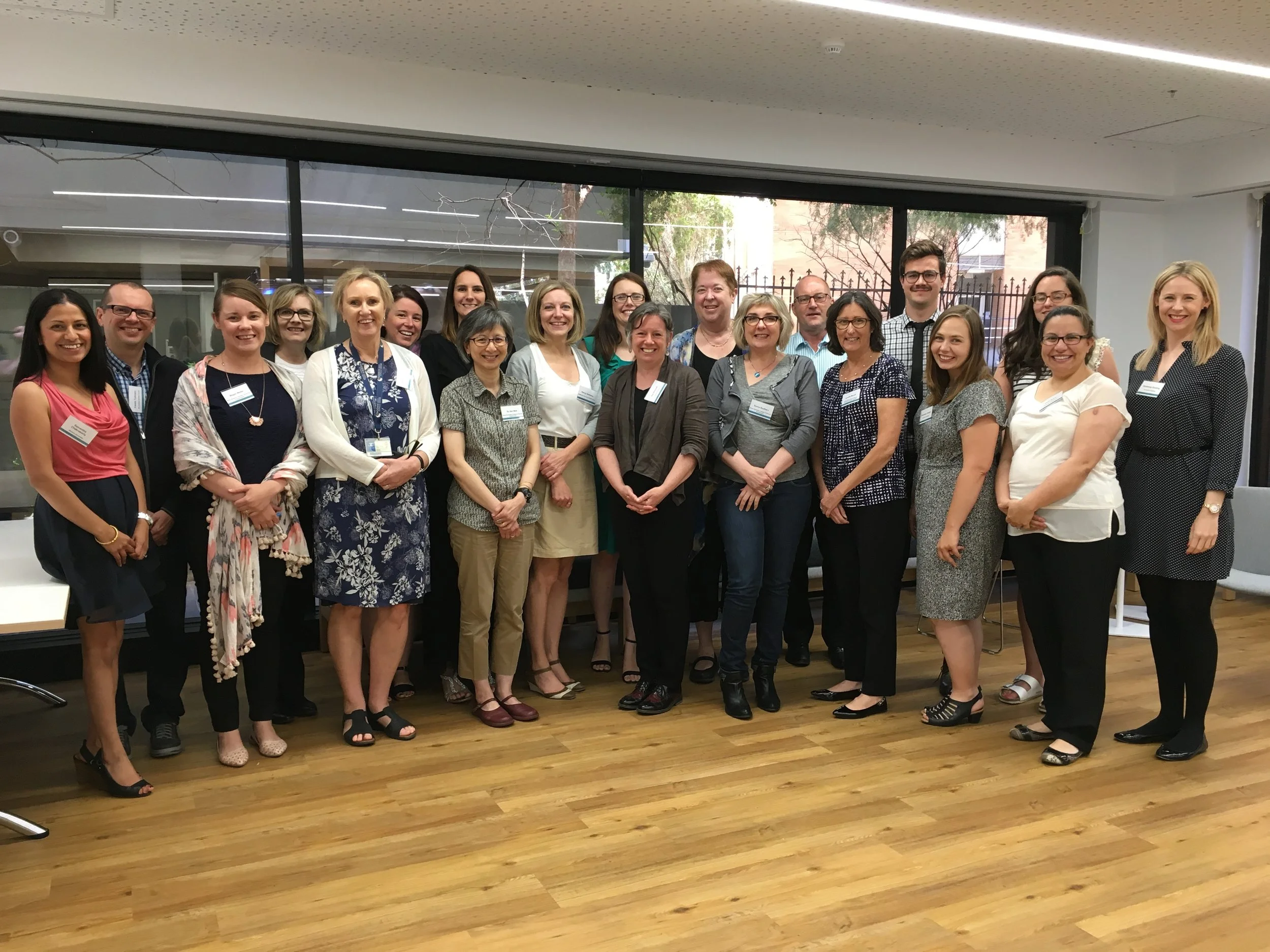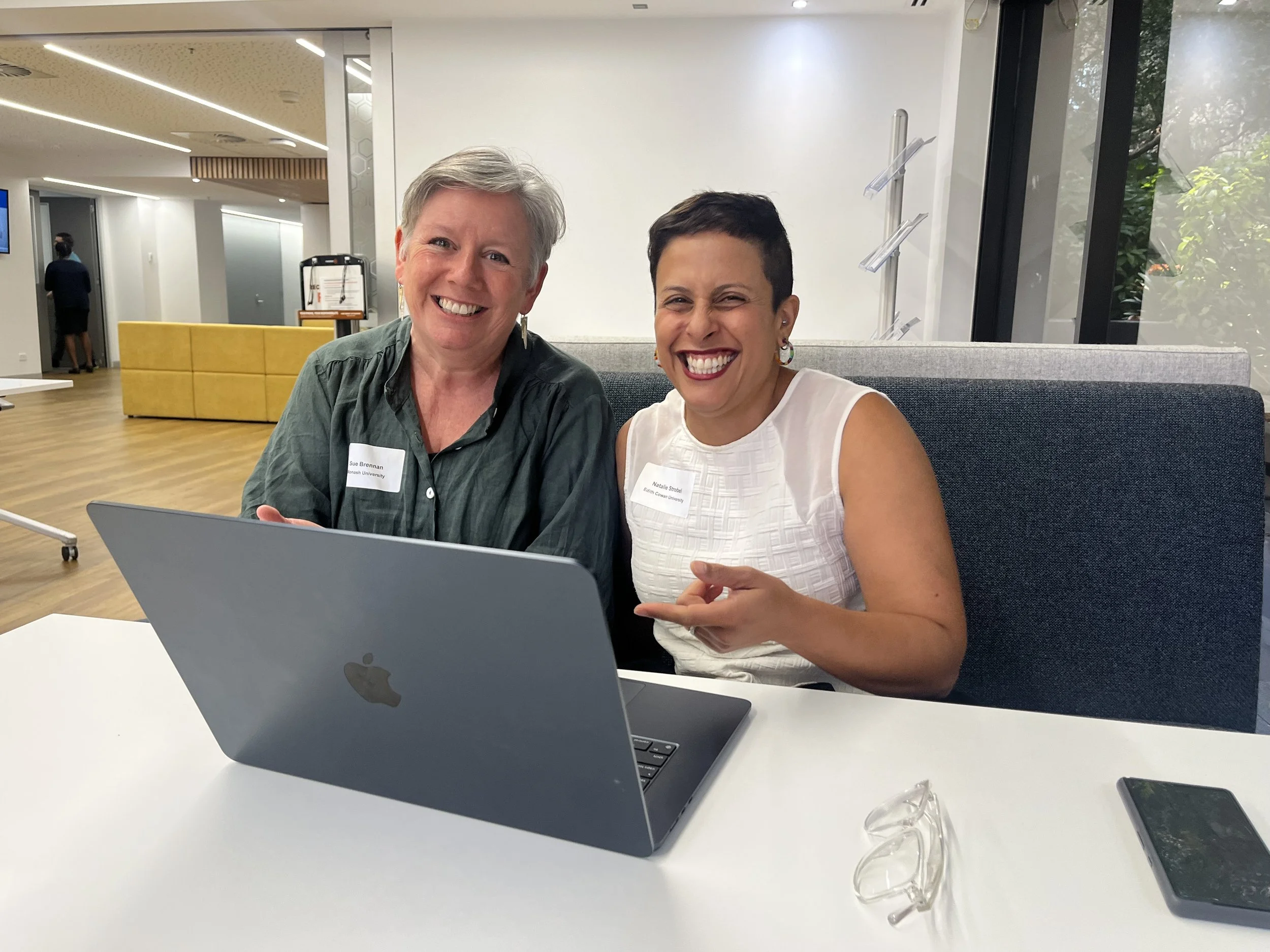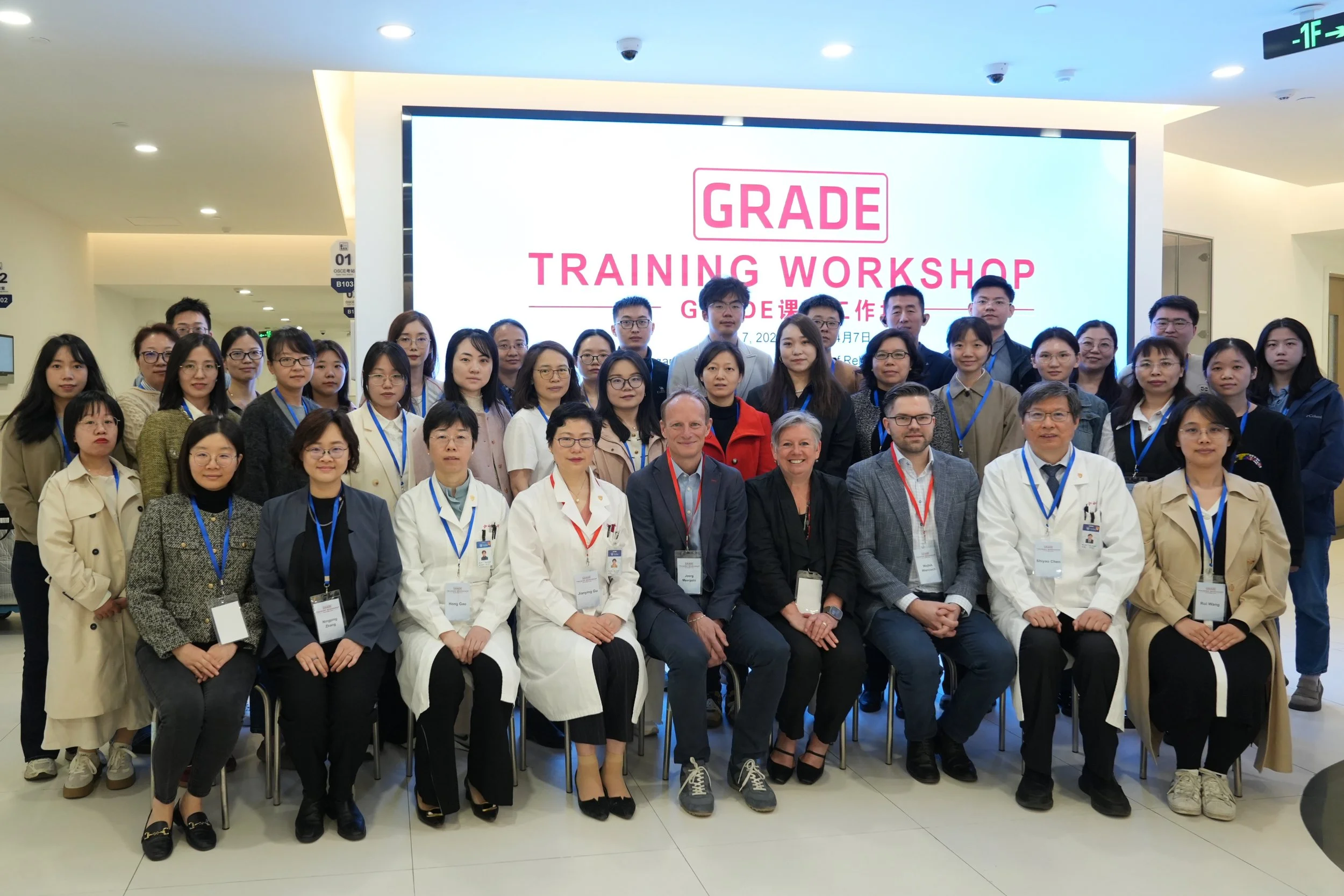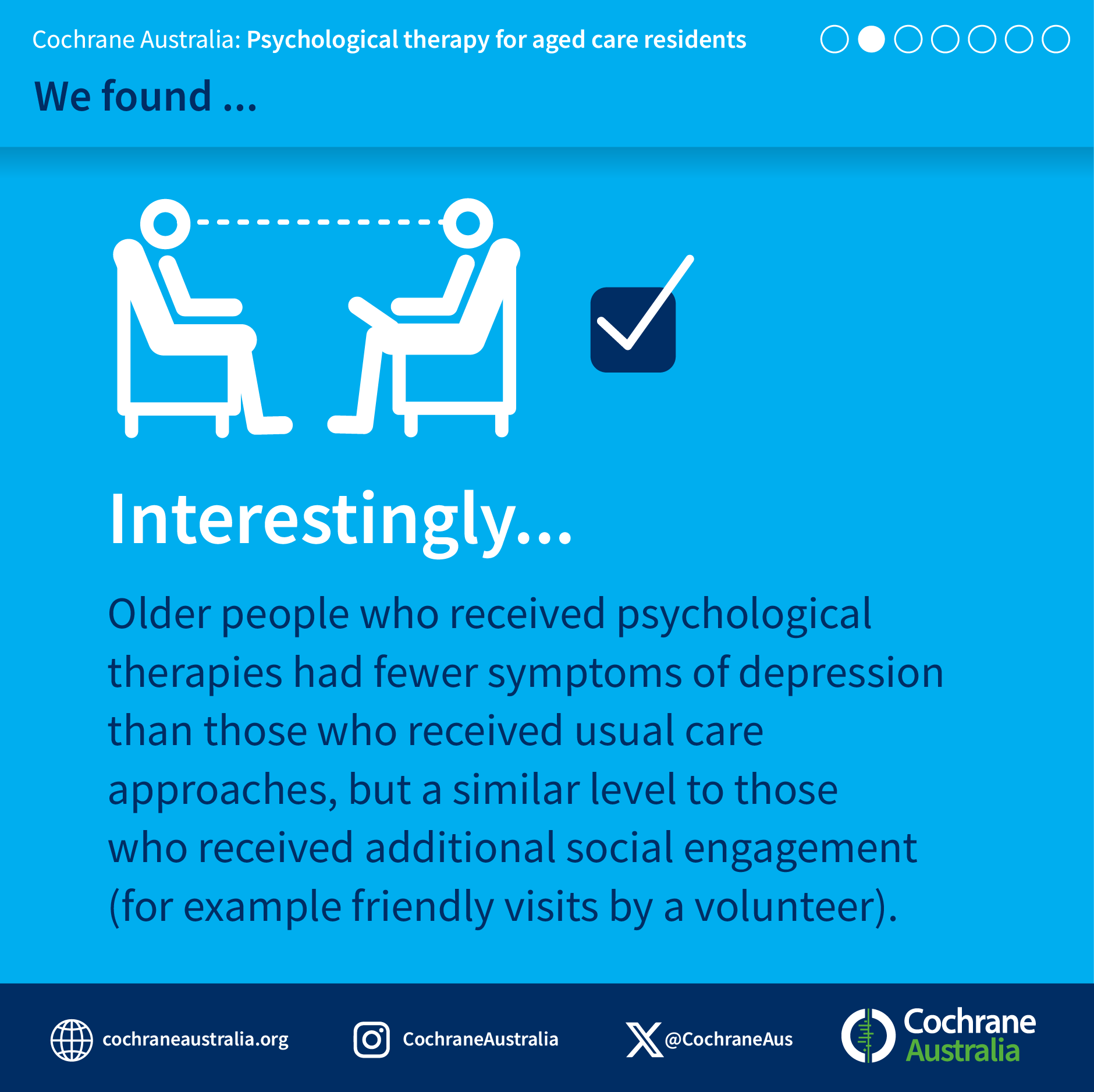Celebrating 25 Years of GRADE
We believe better evidence leads to better health.
For 25 years, GRADE has been transforming evidence into action – it’s the perfect time to reflect on that contribution and share work from the Melbourne GRADE Centre.
GRADE provides transparent, accessible methods and tools for assessing the certainty of evidence and making health decisions, including recommendations. GRADE centres and networks serves as the primary hub within the region for GRADE related questions and for support and collaboration opportunities.
The Melbourne GRADE Centre aims to help researchers, clinicians and policy makers understand, apply and trust GRADE — shaping guidelines, strengthening policy and building capacity across our country and the region.
Our story began with a single workshop back in 2017. Since then we’ve:
Led 70+ workshops for more than 1,600 participants
Delivered 26 customised workshops for 15 guideline groups
Supported the development of 5 NHMRC-approved guidelines (with more underway)
Contributed to many more guidelines nationally and internationally
Collaborated nationally and internationally on methods development and guidance to help others deliver trustworthy evidence and recommendations
Applied GRADE methods in evidence syntheses that have supported national guidelines and health policy decisions.
Today, as one of only two GRADE Centres in Australia, we lead a regional program of advocacy, training and support, and contribute to the global evolution of GRADE methods.
Now, as we mark this 25 year global milestone for GRADE, we look back on the journey so far — and ahead to the next chapter of advancing evidence-informed decisions around Australia and across our region.
National Training: Building GRADE skills across Australia
From our first national workshop in 2017 to today, the Melbourne GRADE Centre has helped researchers, clinicians and policy makers across the country build the skills needed to apply GRADE with confidence. Our courses range from introductory sessions to Australia’s first two-day Evidence-to-Decision course, giving guideline panels and technical teams a practical, hands-on experience of turning evidence into recommendations.
Highlights:
71 workshops delivered for 1,600+ participants
30 full-day workshops, including our first NHMRC-supported event in 2017
26 customised workshops for 15 guideline groups
Video:
Dr Sue Brennan explains how GRADE supports NHMRC guideline development
Melbourne GRADE Centre Director Dr Sue Brennan prepares for a symposium talk on recent advances in GRADE at the Monash School of Public Health and Preventive Medicine with Dr Natalie Strobel.
Guidelines: From evidence to practice
Our GRADE work began in evidence synthesis, but quickly expanded to health decision making when the NHMRC endorsed the use of GRADE in clinical practice guidelines soon after we established the Melbourne GRADE centre. We have been fortunate to collaborate with guideline developers who share GRADE’s commitment to transparent evidence assessment, that empowers individuals, organizations, and policymakers to make informed, values-based decisions.
Our methods contributions span national and international guidelines across diverse areas — from dementia care and mental health to neonatal hypoglycaemia and immunisation - but all use the GRADE Evidence to Decision framework to make recommendations.
Highlights:
Te Tohu Waihonga - Neonatal hypoglycaemia (Aotearoa NZ)
Physical Rehabilitation and Mobilisation in Adult Intensive Care Units (NHMRC approved)
Appropriate use of psychotropic medications for people living with dementia in residential aged care (NHMRC approved)
Pharmacological management of inflammatory arthritis (methods co-chair for selected recommendations (NHMRC approved)
Management of juvenile idiopathic arthritis (methods co-chair for selected recommendations) (NHMRC approved)
Prevention and treatment of acute stress disorder, post-traumatic stress disorder (PTSD) and complex PTSD (NHMRC approved)
Australian Immunisation Handbook (methods advisor on GRADE implementation)
Improving physical function for children and young people with cerebral palsy
Current projects:
MDMA-assisted psychotherapy for PTSD (public consultation version, 2025)
Kids’ Leg pain: Diagnosis and care for children and adolescents who live with chronic lower limb pain
Contributed to five NHMRC-approved guidelines, with more in progress
Supported the development of guidelines and reviews on:
Dementia care
Arthritis (including living guidelines)
MDMA-assisted psychotherapy for PTSD (in consultation, 2025)
Neonatal hypoglycaemia (Aotearoa NZ, equity-focused exemplar)
NHMRC: Supporting and Informing National Guidelines
From its inception, the Melbourne GRADE Centre has worked closely with the NHMRC to support the use of GRADE through provision of training, methods guidance and advice, and methodological review of guidelines and NHMRC-commissioned systematic reviews.
Our work aims to ensure guideline developers have access to guidance and support needed to meet the requirements for developing their guideline to NHMRC standards.
An example is our collaboration with the NHMRC to write the Guidelines for Guidelines module on Evidence to Decision and Making Recommendations. The module reflects our experience implementing GRADE with guideline developers, and is taught in our Evidence to Decision workshop. To find out more about our upcoming workshops visit our Training page.
Our commissioned reviews for the NHMRC show how GRADE can be used to interpret evidence. From the outset, we design reviews with the GRADE summary of findings in mind – asking ‘what is the most effective way to bring together this evidence to inform decisions and meet the needs of the commissioner’.
The complexity of these reviews – such as in the suite of natural therapies reviews - has provided opportunity to road test new methods we have developed, like the InSynQ tool for planning synthesis questions.
These reviews can reveal critical areas for methods research, including that led by Professor Joanne McKenzie on analysis and meta-analysis of interrupted time series which she says “arose from collaboration on reviews to inform NHMRC’s guidelines on infection control”.
Highlights:
Guidelines for Guidelines Evidence-to-Decision module
More than 40 methodological review reports for the NHMRC of guidelines and commissioned evidence syntheses
Seven systematic review commissioned by the Australian Government for their 2024 review of health insurance rebates for natural therapies (evaluating evidence about 7 therapies from nearly 400 trials)
Systematic review of the dose-response effects of alcohol consumption and cognitive function for the NHMRC’s 2020 guidelines to reduce health risk from drinking alcohol
International Training: Sharing expertise worldwide
As part of the global GRADE community, we contribute to training and knowledge exchange beyond Australia. Our team has been invited to deliver workshops internationally, most recently in Shanghai in 2025, where we taught methods for integrating evidence from both randomised and non-randomised studies.
This full day workshop was developed and delivered in collaboration with colleagues from the McMaster GRADE Centre in Canada and the Freiburg GRADE Center in Germany, with generous contributions from Carlos Cuello Garcia, Holger Schünemann, and other members of the GRADE working group who developed the guidance on which the workshop was based.
Highlights:
Invited to lead international training programs
Active contributions to the GRADE Working Group
Collaborations with colleagues worldwide to refine and share best practice
Image:
Dr Sue Brennan, Professor Joerg Meerpohl and Assistant Professor Wotjek Wiercioch delivering a GRADE workshop hosted by the Fudan GRADE Center and Zhongshan Hospital, Fudan University in Shanghai earlier this year.
A snapshot of GRADE in the news
The Melbourne GRADE Centre contributed to the development and design of the GRADE Certainty of Evidence quick reference visual ‘dial’ for Cochrane review infographics…
Selected reading
Selected reading
-
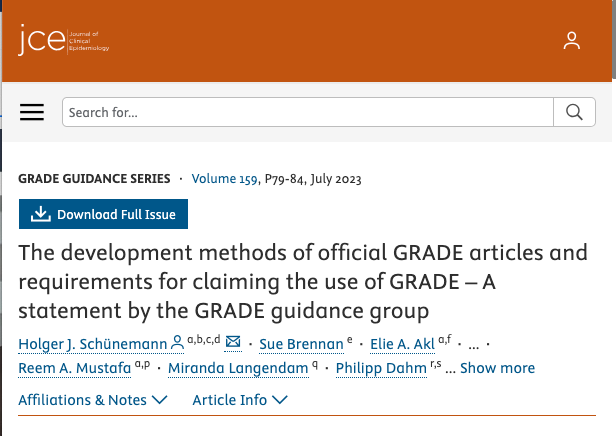
The development methods of official GRADE articles and requirements for claiming the use of GRADE
-
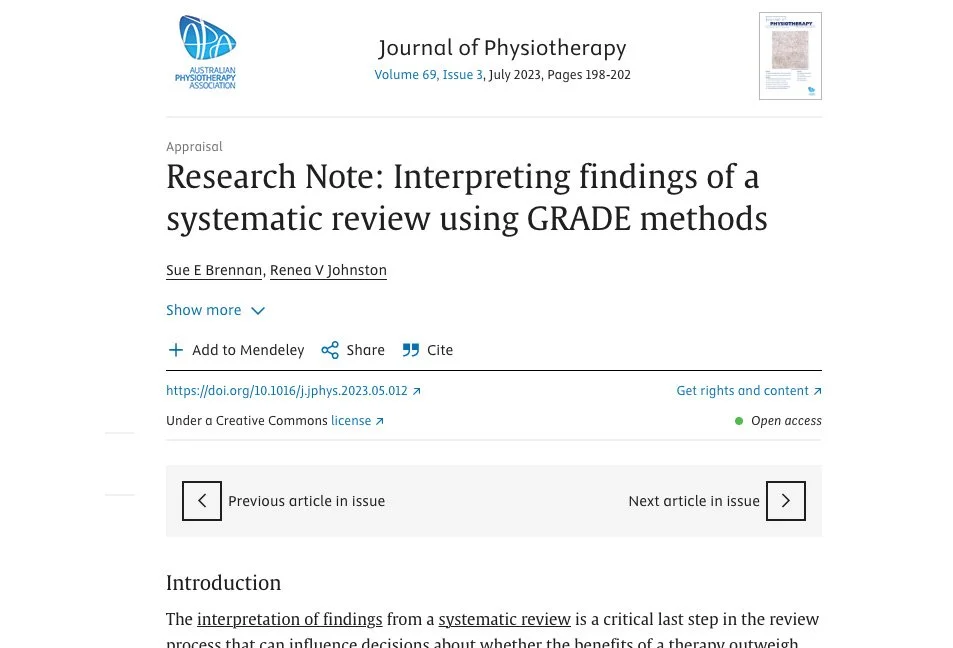
Interpreting findings of a systematic review using GRADE methods
-
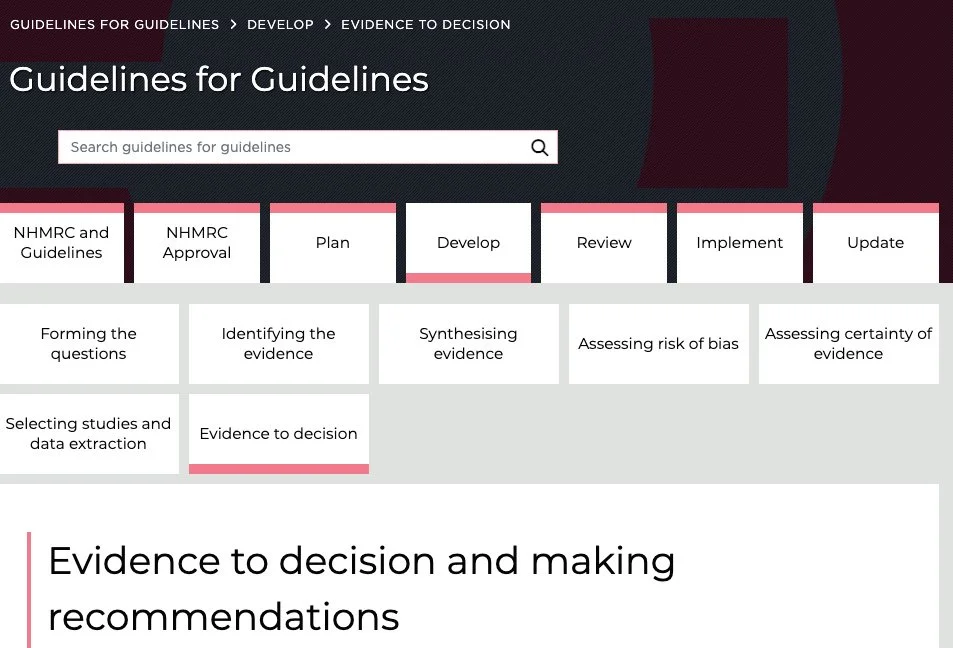
NHMRC Evidence to decision module
-
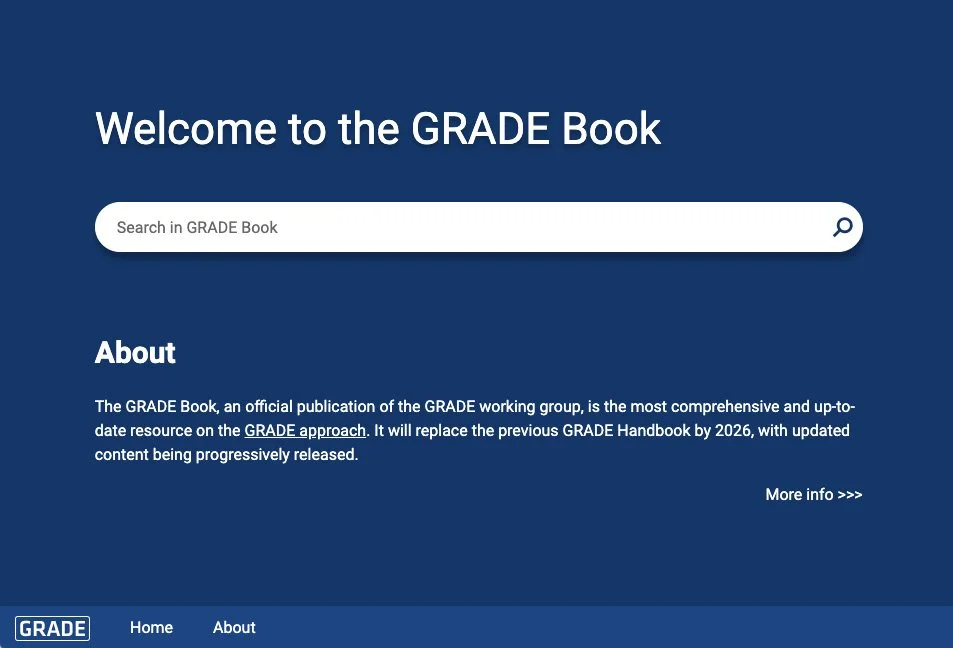
The GRADE Book
